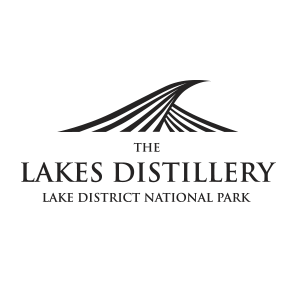English whisky: distilling liquid gold
“Whisky has to stay in the cask for at least three years and a day until it’s certified according to UK law,” says Nigel Mills, CEO of The Lakes Distillery. This lengthy wait presents a challenge to prospective distillers. How can they make money as the spirit is ageing and while continuing to invest in future whisky stocks?
So right from the start in 2012, Mills along with co-founders Paul Currie and Gary Thornton created a business plan that included multiple income streams. And on the menu were gin and vodka, a blended whisky, retail, a restaurant, a guided tour and an online shop.
“For most distilleries it’s a race to get the casks open and get the whisky sold,” says Mills. “But for us, we have other income streams. And as a result we have time to develop our multi-oak, multi-sherry maturation strategy. We believe this makes us unique in the world.”
Today the distillery attracts more than 100,000 visitors a year. The organisers of World Whisky Day chose the distillery as number one of the Eight distilleries to visit before you die. The list includes esteemed makers such as Glenfiddich in Scotland and Kavalan in Taiwan.
Building the right team
Mills always knew that human capital was integral to making their goals a reality. Without master distillers, expert restaurateurs and business expertise, he believes, the project would have little chance to succeed.
The trio shared their business plan with whisky expert Dr Alan Rutherford and asked for his professional opinion. “He said that it was the best business plan for a new distillery he’d ever seen,” says Mills. Impressed by Rutherford’s praise, Mills asked him to join the team. Then the bold move paid off.
Mills replicated this strategy in recruiting ex-Michelin-starred chef Terry Laybourne who was tasked with heading up the site’s bistro.
Our vision is to create a global whisky brand in the luxury goods sector.
Nigel Mills, The Lakes Distillery
Show us the money
After the team was in place, Mills knew they were in strong position to seek investment. “We had the plan, the people, but we just needed to raise the capital, and we knew the Enterprise Investment Scheme would help us,” says Mills.
The company raised £9.9m from high-net-worth individuals through Enterprise Investment Scheme (EIS)-qualified funds. They raised £1.5 via Crowdcube, also EIS-qualified, and a further £600,000 in grants mainly from Cumbria-based regeneration company Britain’s Energy Coast.
Their funding meant they could start construction in January 2014 and start trading on December 15 later that year. Their first batch of whisky spirit was legally entitled to be called whisky from December 17, 2017.
“Our vision is to create a global whisky brand in the luxury goods sector. Our multi-oak, multi-sherry maturation policy developed by world-class whisky expert Dhavall Gandhi who is confident of helping us achieve those goals,” says Mills.
Planning to go public
This year’s turnover is expected to be £6.7m. The bistro, on-site shop and tours generate £2.5m a year in sales, which Mills expects to reach £2.7m at the end of 2018. “The biggest growth area will be UK retail, wholesale and export because it’s all very scalable and generates £4m,” says Mills.
Mills points to the fact that gin sales of 70cl-equivalent bottles will exceed 200,000 this year. And as for the whisky, right now the distillery is producing around 400,000 bottles, but this is set to increase.
The company continues to need to raise funds to invest in whisky stock and white spirits. Mill says they plan to raise extra capital to fund expansion in the UK, Europe, the US and Asia.
